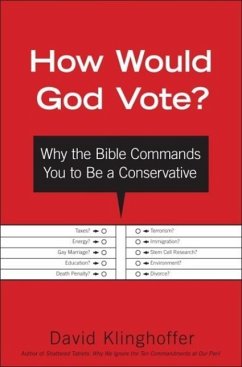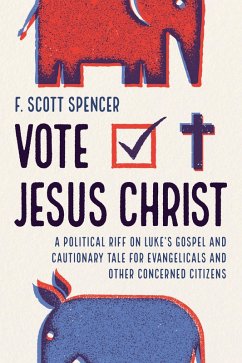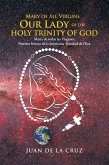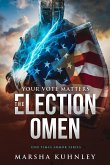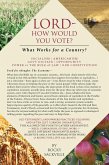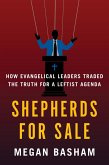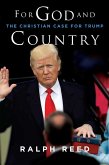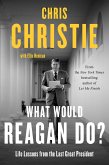From How Would God Vote? "The Bible commands a style of politics that in the American context could only be described as deeply conservative. Is, then, the politics of God theocratic? "A strong case could be made for theocracy, American-style, if the word were defined not in the conventional way but according to its root meaning. Democracy signifies the rule of the demos, the people. Strictly speaking, theocracy means the rule not of churches or priests but of theos, God. It won't do to deny that many conservatives, even while unambiguously affirming the traditional American separation of church and state, would add more theos to the democratic mix than is currently the case. I choose not to call myself a theocrat because I know how eager liberal secularists would be to twist the word against me. Dishonestly they would make it appear that I wish to impose a literal biblical theocracy, that I would dumbly imitate word for word the political structure of king, priesthood, and religious high court that existed in biblical antiquity. "Yet, in a subtler sense, are we not all theocrats now?” This startlingly original investigation into the controversies dividing America provides a clear and convincing affirmation of the relevance of the Bible to contemporary politics. With liberals and conservatives alike claiming the authority of the Bible as support for their views on social and moral issues, the need to understand what the Bible actually says has never been more pressing. In How Would God Vote?, journalist and scholar David Klinghoffer illuminates the worldview set forth in the Scriptures and argues that, with some exceptions, the God of the Bible would overwhelmingly support traditionally conservative principles and policies. Klinghoffer considers the ethical and moral heart of contemporary political debates—questions like immigration, gay marriage, abortion, care for the poor, war and peace, censorship, privacy, the place of religion in schools and the community, and much more. There is a pattern here. It's for a very good reason that conservatives line up as they do, predictably, on a range of issue; as do liberals. The two competing political philosophies derive from radically different ways of looking at the world: one in consonance with the Bible, the other very much not. Klinghoffer, however, is no stereotypical Republican. Controversially, he argues that the Bible would have us emphasize domestic policy, the classic pre-9/11 culture war issues, over a hyped-up "World War IV” against "Islamofascism.” The Bible has a foreign policy, he shows, and it is not neoconservative. He demonstrates support in the Scriptures for a welcoming attitude toward immigrants, for gun control, and for affirmative action. The Bible, Klinghoffer shows, is no mere list of dos and don'ts but a fully coherent and practically relevant portrait of moral reality, compelling and deep enough to guide not only our private but our public lives. Even if we as individuals fail its private tests, that's no reason to reject its public lessons. To anyone who takes God seriously, every election poses a radical question: Will we vote with Him, or against Him? The Bible is an unapologetically political book, Klinghoffer explains, and an extremely conservative one. Some political views offend God, and those views are mostly liberal. In short, the Bible commands you to be a conservative. Stimulating and provocative, How Would God Vote? is an important contribution to pre-election debates and to setting the path the nation will follow in the future under a new president.
Dieser Download kann aus rechtlichen Gründen nur mit Rechnungsadresse in A, B, BG, CZ, D, DK, EW, E, FIN, F, GR, HR, H, I, LT, L, LR, NL, PL, P, R, S, SLO, SK ausgeliefert werden.

